‘Forgotten cousin of agriculture’: Senate committee digs into soil health in Guelph

Healthy soil is key to growing food, purifying water, cleaning air and sustaining life.
So how healthy is Canada’s soil?
The Senate Committee on Agriculture and Forestry is digging into that question with a study on Canadian soil health. The committee is examining the status of Canada’s soil conditions to identify ways to better preserve our soil and to seek input on how the federal government can help producers — and all Canadians — thrive. The committee is also exploring different carbon sequestration techniques to boost soil health, prevent soil degradation and mitigate climate change.
It’s the first study of its kind since 1984. Back then, the outlook was bleak. The report concluded that soil degradation is a serious problem across Canada and that, without action, the country risked losing much of its agricultural capacity.
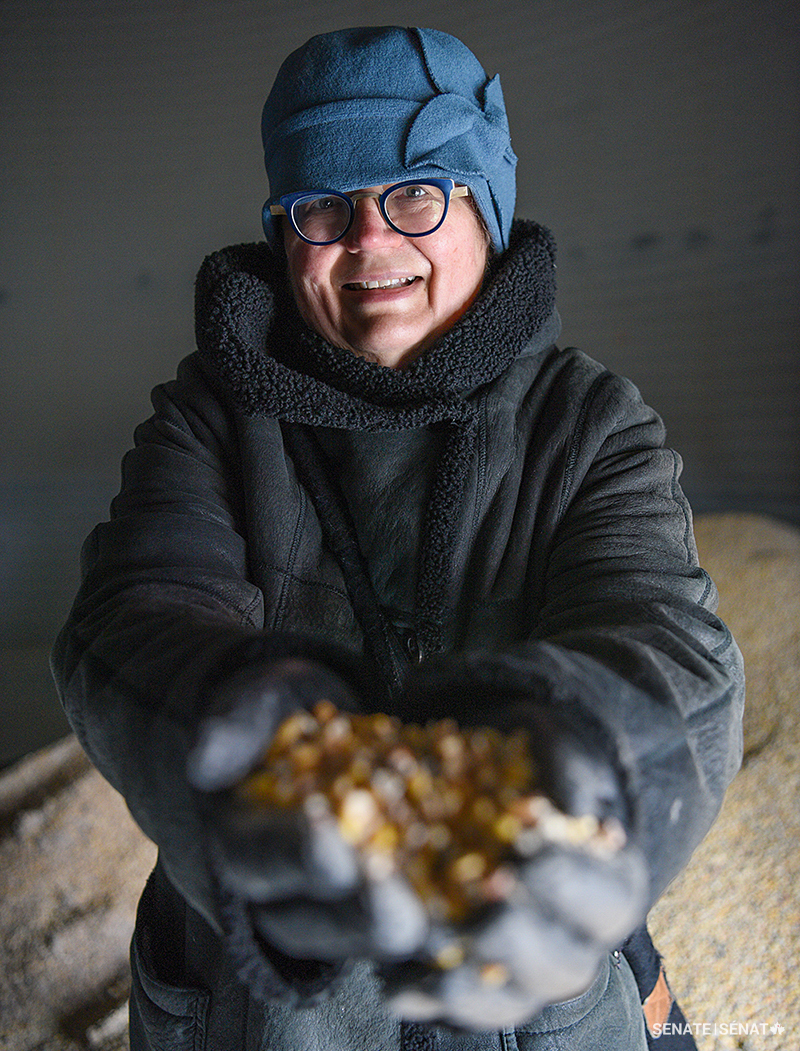
A lot has changed in 40 years. Agricultural producers have a wealth of new technologies that allow them to better manage their crops and bring more food to the table. But Canadian producers are also being asked to produce even more, not just to feed those of us at home, but to satisfy global appetites. Can our soil still sustain us?
“Soil is the forgotten cousin of agriculture,” said committee chair Senator Rob Black. “We talk a lot about air and water, and the federal government has regulations in place to protect these elements. We don’t often hear about the ground we walk on.”
As part of the study, committee members embarked on a fact-finding mission to the Canada Agriculture and Food Museum in Ottawa in December 2022 where they got their hands dirty with soil experiments. Then they travelled to Guelph, Ontario, from April 24 to 26, 2023, to meet with farmers, scientists and workers at crop protection companies — all experts on soil health.
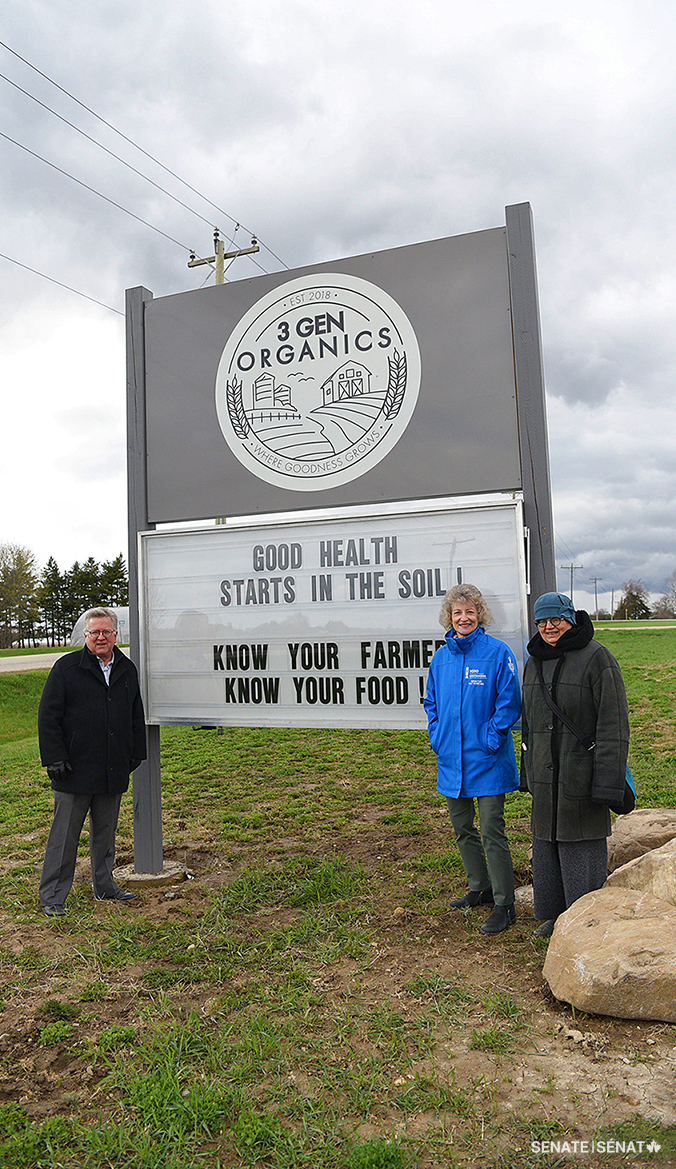
From left, Senator Rob Black, chair of the Senate Committee on Agriculture and Forestry, Senator Pat Duncan and committee deputy chair Senator Paula Simons visited 3Gen Organics, a family-owned farm in Wallenstein, Ontario, where they learned more about organic farming practices.
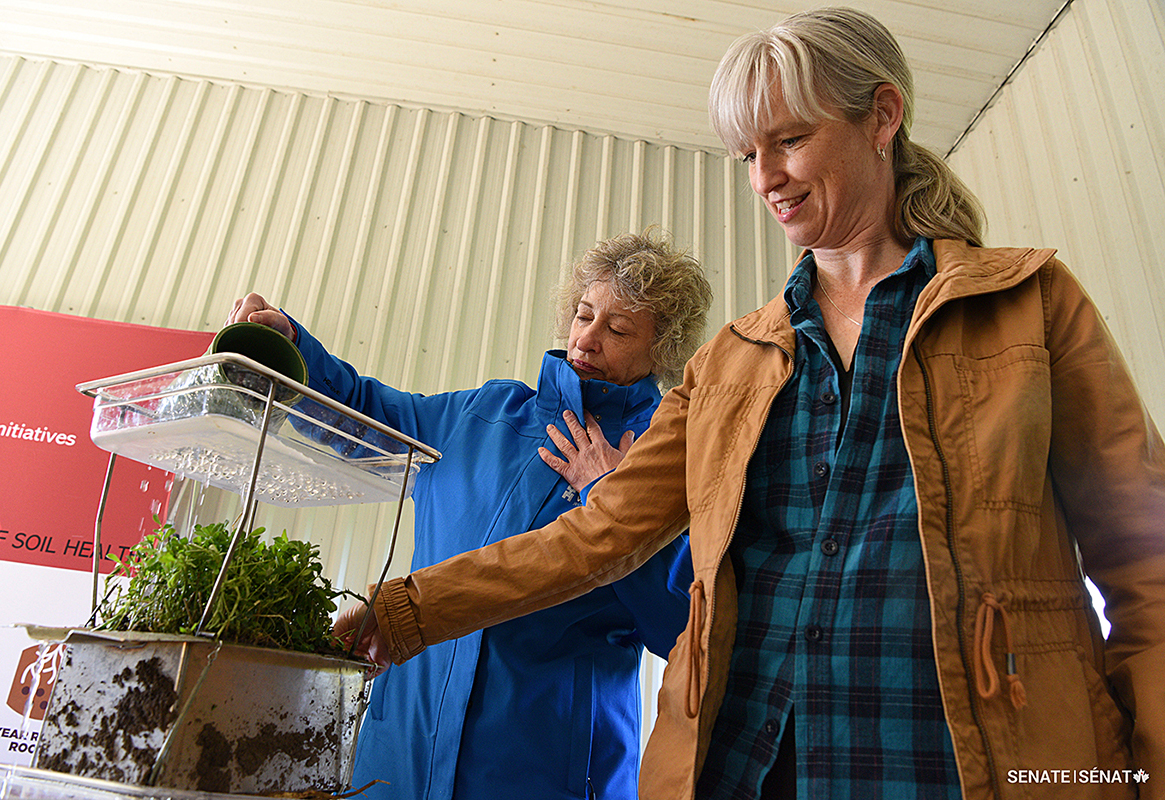
Senators had a hands-on experience at the University of Guelph’s Soil Health Interpretive Centre. Senator Duncan participated in a rainfall simulation experiment to observe water runoff from this alfalfa plant. Heather White, knowledge mobilization and communications coordinator with Soils at Guelph, guided the experiment.
Ontario is an agricultural powerhouse — the province is home to more than a quarter of Canada’s farms — and Guelph is a centre of excellence in the fields of agricultural research, innovation and agri-technology.
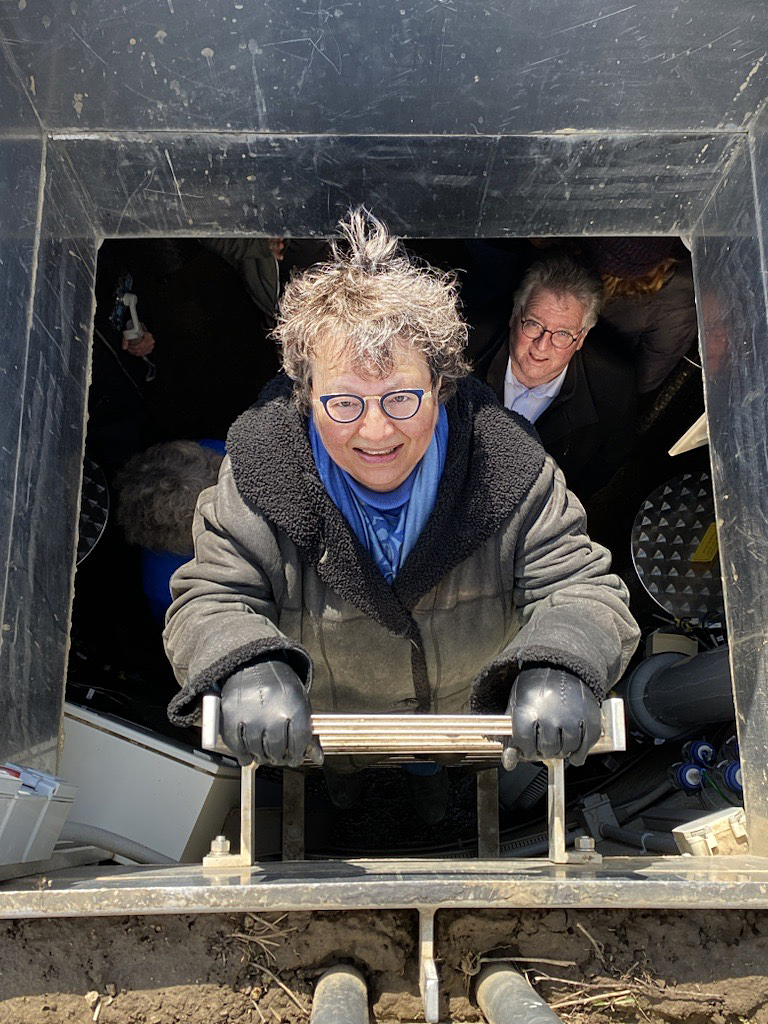
The committee heard a range of perspectives on how to best protect our soil, including no-till practices, soil-mapping strategies, diversifying crops, carbon sequestration techniques and pest control. Everyone was emphatic on one point: soil is a vital resource that we must protect.
“It’s clear that there is no one-size-fits-all approach to preserving soils,” said Senator Black. “We need to look at soil health from a variety of perspectives. Our committee hopes to continue meeting face-to-face with soil health experts across the country.”
Take a look at some photos from the committee’s fact-finding mission to Guelph.
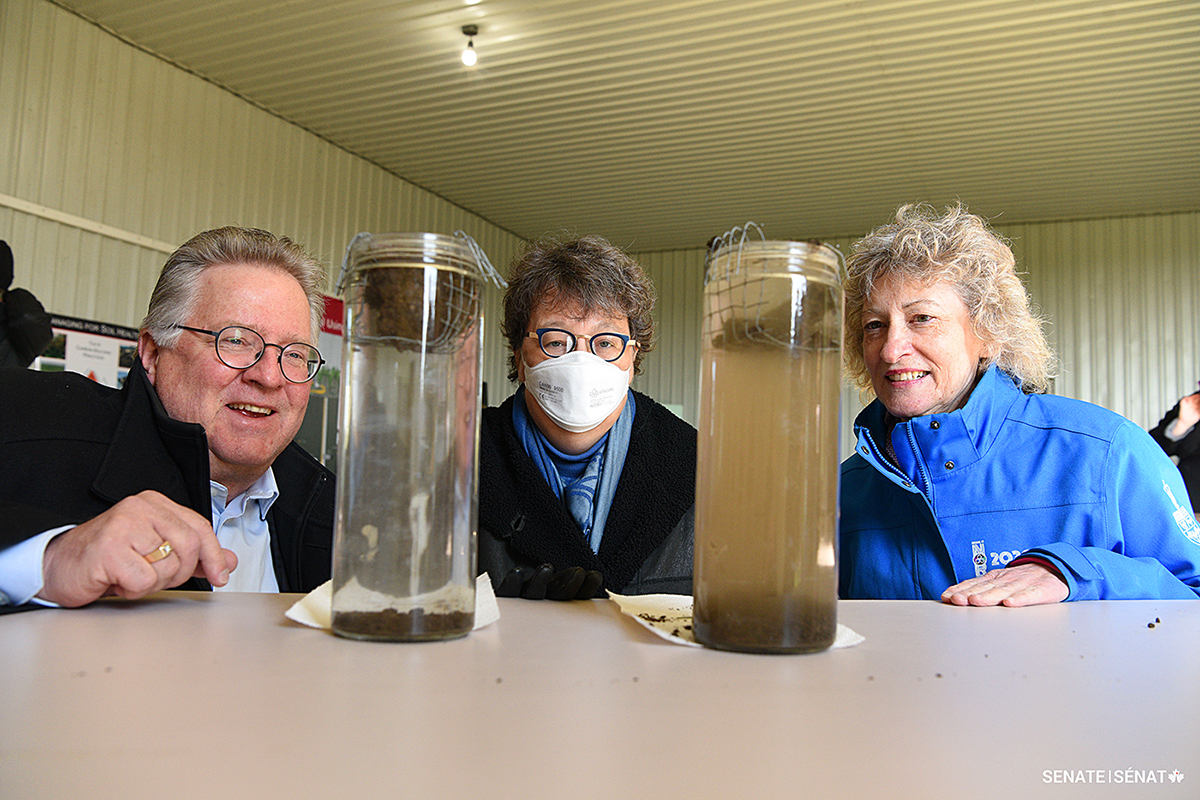 Committee members also participated in a slake test at the Soil Health Interpretive Centre. A slake test demonstrates soil stability, and whether the soil is resilient to erosion.
Committee members also participated in a slake test at the Soil Health Interpretive Centre. A slake test demonstrates soil stability, and whether the soil is resilient to erosion.
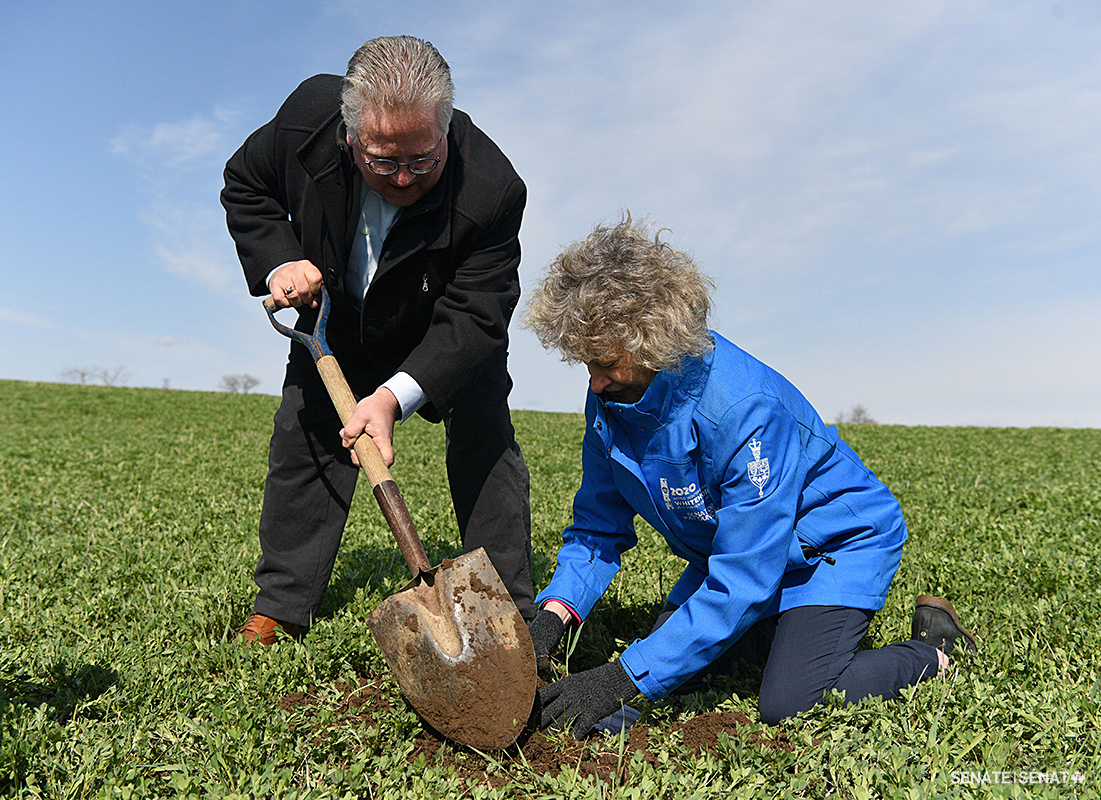
Senators Black and Duncan get their hands dirty for a soil health experiment.
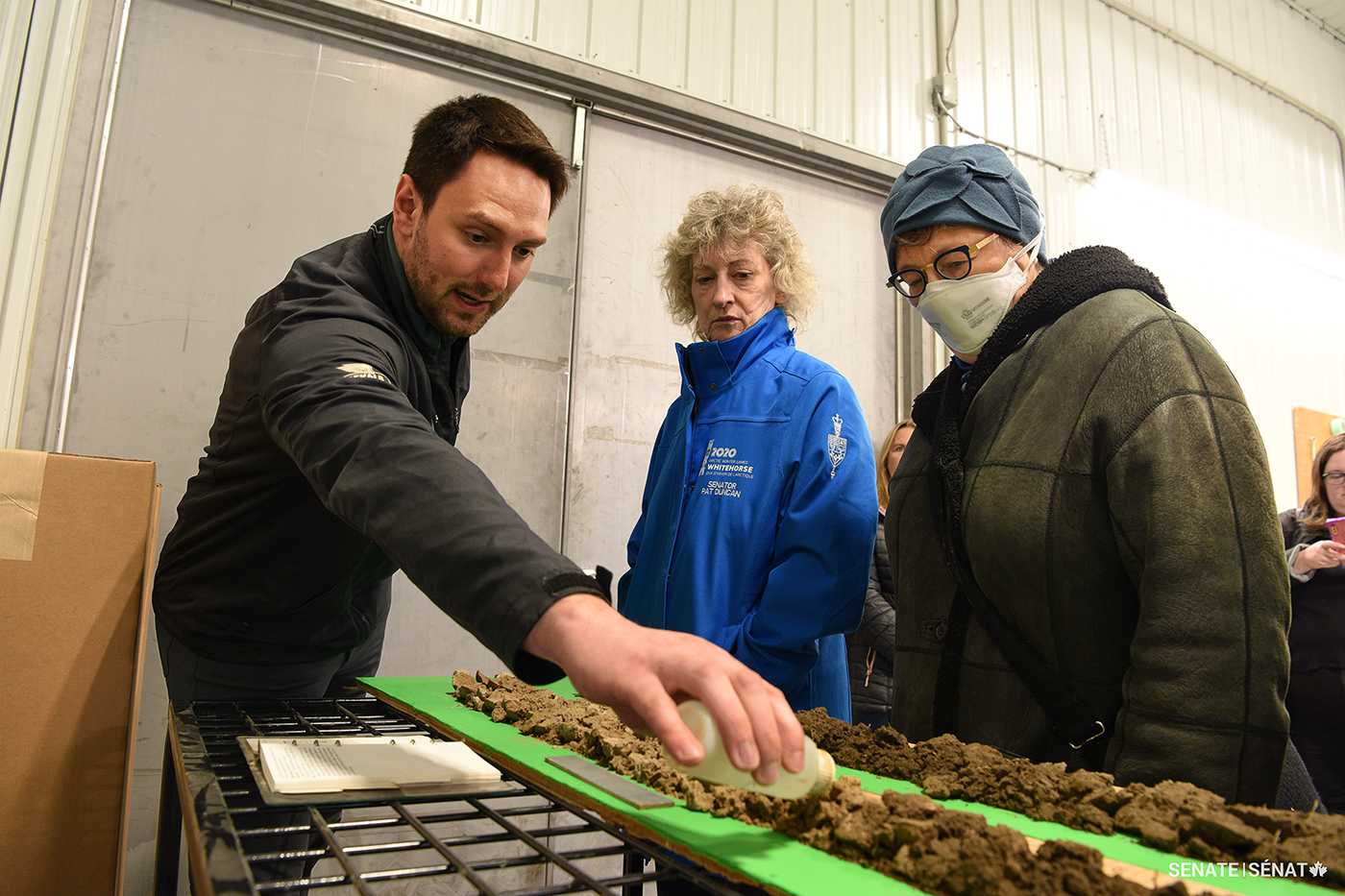 Woodrill Ltd. agronomist Caleb Niemeyer shows senators Duncan and Simons how hydrochloric acid reacts to different types of soil. Woodrill is a crop input supply company and grain elevator business.
Woodrill Ltd. agronomist Caleb Niemeyer shows senators Duncan and Simons how hydrochloric acid reacts to different types of soil. Woodrill is a crop input supply company and grain elevator business.
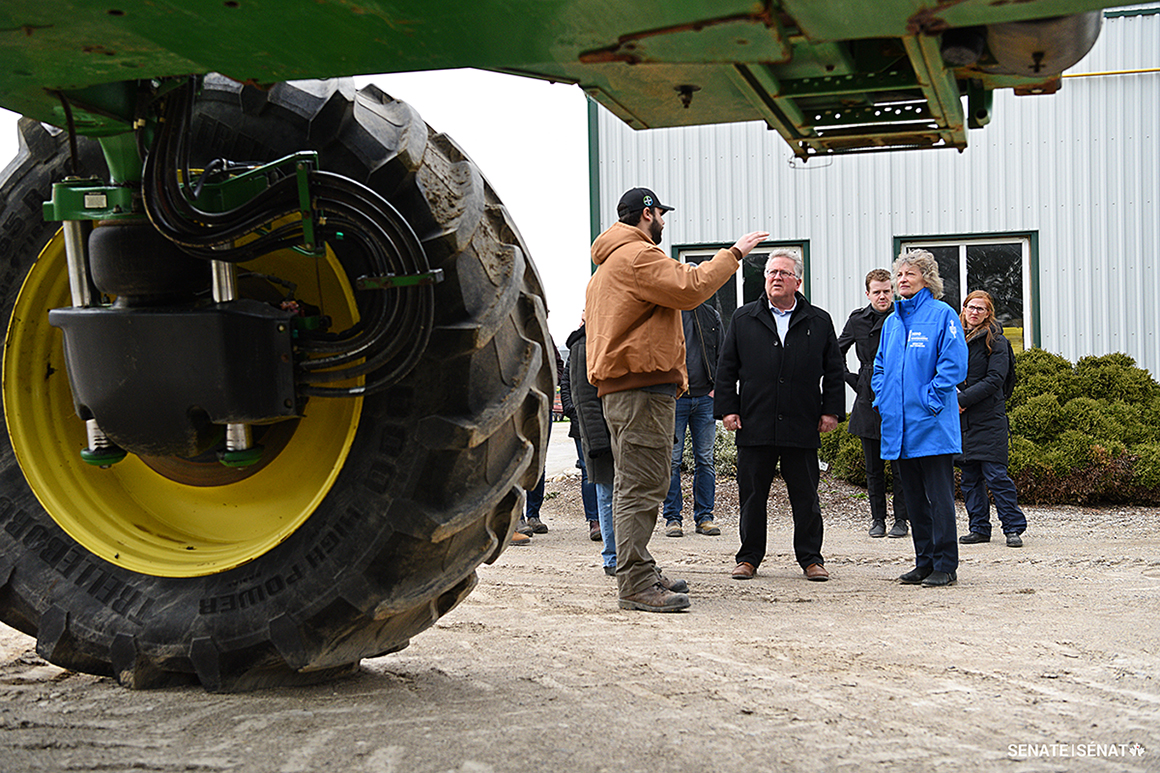 Operator Ben Bellman gives senators a tour of Woodrill. Senators learned about the company’s soil-mapping program, called GroundWork, that aims to help producers boost their crop yields.
Operator Ben Bellman gives senators a tour of Woodrill. Senators learned about the company’s soil-mapping program, called GroundWork, that aims to help producers boost their crop yields.
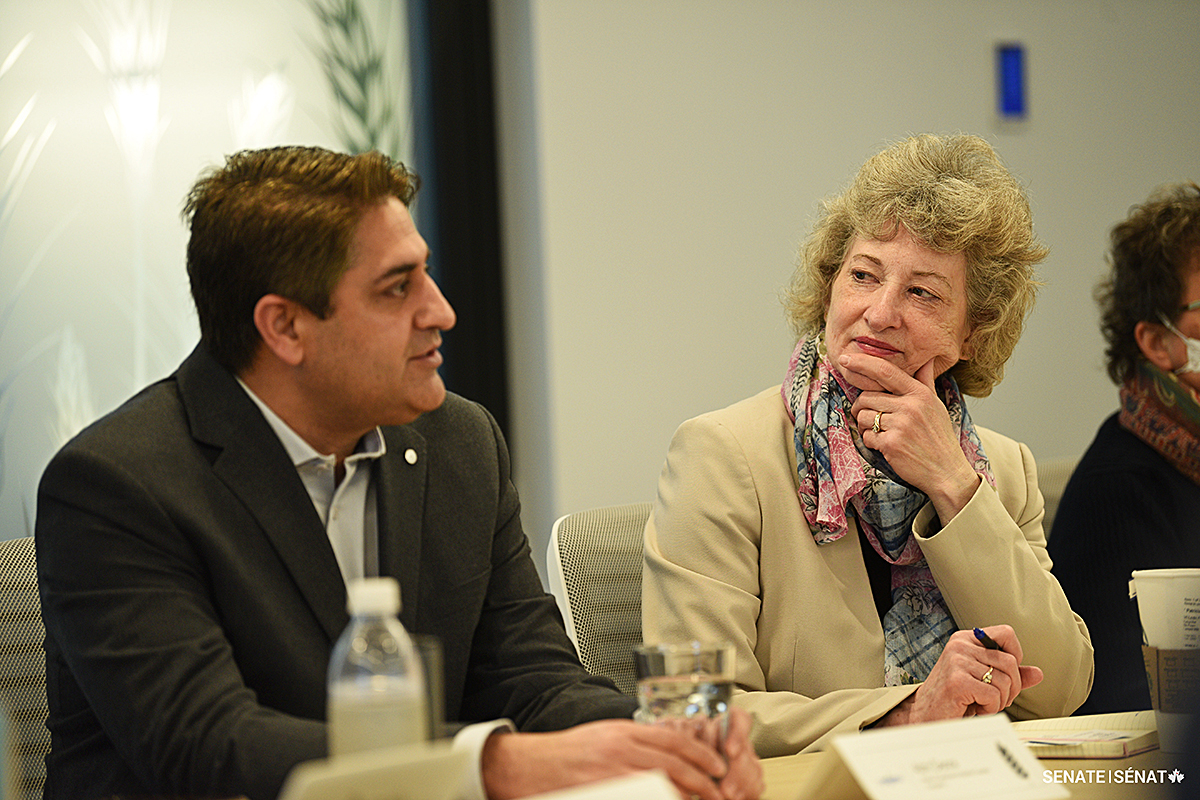 The committee stopped by Syngenta Canada, a global ag-tech company that specializes in crop protection, seeds and seed care, digital agriculture, and more. Seedcare Institute Canada head Abhi Deora, left, explained how Syngenta’s treatments tackle seed- and soil-borne pests and diseases.
The committee stopped by Syngenta Canada, a global ag-tech company that specializes in crop protection, seeds and seed care, digital agriculture, and more. Seedcare Institute Canada head Abhi Deora, left, explained how Syngenta’s treatments tackle seed- and soil-borne pests and diseases.
Related articles
Tags
Committee news
‘Forgotten cousin of agriculture’: Senate committee digs into soil health in Guelph

Healthy soil is key to growing food, purifying water, cleaning air and sustaining life.
So how healthy is Canada’s soil?
The Senate Committee on Agriculture and Forestry is digging into that question with a study on Canadian soil health. The committee is examining the status of Canada’s soil conditions to identify ways to better preserve our soil and to seek input on how the federal government can help producers — and all Canadians — thrive. The committee is also exploring different carbon sequestration techniques to boost soil health, prevent soil degradation and mitigate climate change.
It’s the first study of its kind since 1984. Back then, the outlook was bleak. The report concluded that soil degradation is a serious problem across Canada and that, without action, the country risked losing much of its agricultural capacity.

A lot has changed in 40 years. Agricultural producers have a wealth of new technologies that allow them to better manage their crops and bring more food to the table. But Canadian producers are also being asked to produce even more, not just to feed those of us at home, but to satisfy global appetites. Can our soil still sustain us?
“Soil is the forgotten cousin of agriculture,” said committee chair Senator Rob Black. “We talk a lot about air and water, and the federal government has regulations in place to protect these elements. We don’t often hear about the ground we walk on.”
As part of the study, committee members embarked on a fact-finding mission to the Canada Agriculture and Food Museum in Ottawa in December 2022 where they got their hands dirty with soil experiments. Then they travelled to Guelph, Ontario, from April 24 to 26, 2023, to meet with farmers, scientists and workers at crop protection companies — all experts on soil health.

From left, Senator Rob Black, chair of the Senate Committee on Agriculture and Forestry, Senator Pat Duncan and committee deputy chair Senator Paula Simons visited 3Gen Organics, a family-owned farm in Wallenstein, Ontario, where they learned more about organic farming practices.

Senators had a hands-on experience at the University of Guelph’s Soil Health Interpretive Centre. Senator Duncan participated in a rainfall simulation experiment to observe water runoff from this alfalfa plant. Heather White, knowledge mobilization and communications coordinator with Soils at Guelph, guided the experiment.
Ontario is an agricultural powerhouse — the province is home to more than a quarter of Canada’s farms — and Guelph is a centre of excellence in the fields of agricultural research, innovation and agri-technology.

The committee heard a range of perspectives on how to best protect our soil, including no-till practices, soil-mapping strategies, diversifying crops, carbon sequestration techniques and pest control. Everyone was emphatic on one point: soil is a vital resource that we must protect.
“It’s clear that there is no one-size-fits-all approach to preserving soils,” said Senator Black. “We need to look at soil health from a variety of perspectives. Our committee hopes to continue meeting face-to-face with soil health experts across the country.”
Take a look at some photos from the committee’s fact-finding mission to Guelph.
 Committee members also participated in a slake test at the Soil Health Interpretive Centre. A slake test demonstrates soil stability, and whether the soil is resilient to erosion.
Committee members also participated in a slake test at the Soil Health Interpretive Centre. A slake test demonstrates soil stability, and whether the soil is resilient to erosion.

Senators Black and Duncan get their hands dirty for a soil health experiment.
 Woodrill Ltd. agronomist Caleb Niemeyer shows senators Duncan and Simons how hydrochloric acid reacts to different types of soil. Woodrill is a crop input supply company and grain elevator business.
Woodrill Ltd. agronomist Caleb Niemeyer shows senators Duncan and Simons how hydrochloric acid reacts to different types of soil. Woodrill is a crop input supply company and grain elevator business.
 Operator Ben Bellman gives senators a tour of Woodrill. Senators learned about the company’s soil-mapping program, called GroundWork, that aims to help producers boost their crop yields.
Operator Ben Bellman gives senators a tour of Woodrill. Senators learned about the company’s soil-mapping program, called GroundWork, that aims to help producers boost their crop yields.
 The committee stopped by Syngenta Canada, a global ag-tech company that specializes in crop protection, seeds and seed care, digital agriculture, and more. Seedcare Institute Canada head Abhi Deora, left, explained how Syngenta’s treatments tackle seed- and soil-borne pests and diseases.
The committee stopped by Syngenta Canada, a global ag-tech company that specializes in crop protection, seeds and seed care, digital agriculture, and more. Seedcare Institute Canada head Abhi Deora, left, explained how Syngenta’s treatments tackle seed- and soil-borne pests and diseases.


